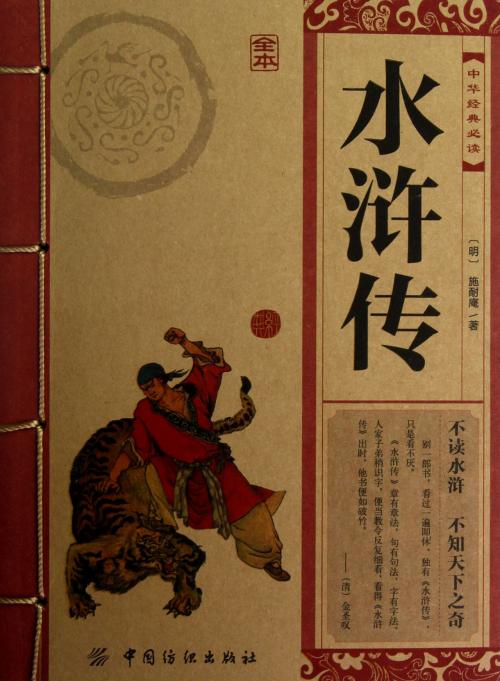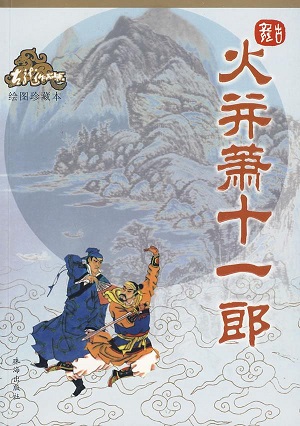ARCHÆOLOGISTS guard those curious, twice-written documents called palimpsests as carefully as though they were so much gold. They are parchments from which the first inscriptions1 were erased3 years and years ago, to be substituted by others. More recently, assiduous investigators4 have learned how to bring the erased characters to light, to decipher them, and to read them.
The idea of those strange documents came to Quentin’s mind as he thought about his life.
Eight years of English school had apparently5 completely erased the memories of his early childhood. The uniformity of his school life, the continual sports, had dulled his memory. Night after night Quentin went to bed overcome with fatigue7, with nothing to preoccupy8 his mind save his themes and his lessons; but his removal from the scholarly atmosphere, and his return to his home, had been sufficient to reawaken memories of his childhood—vaguely9 at first, but daily growing stronger, more distinct, and more detailed10.
The erased inscription2 of the palimpsest was again becoming comprehensible: memories long dormant11 were crowding Quentin’s mind: of these recollections, some were sad and gloomy; others, and these were very few, were gay; still others were not as yet very clear to him.[34]
Quentin endeavoured to reconstruct his childhood. He remembered having passed it in a house on the Calle de Librerías, near the Calle de la Feria and the Cuesta de Luján, and he went to see the place. It was on a corner of the street: a rose-coloured house with a silversmith’s shop on the lower floor, two large and pretentious12 balconies on the main floor, and above them, two rectangular windows. On top of the roof, was a diminutive13 azotea surrounded by a rubble-stone wall.
“That is where I was as a child,” said Quentin to himself.
He remembered vaguely that hedge-mustard used to grow between the slabs14 of the azotea, and that he had a white cat with which he used to play.
He peeped into the shop, and there came to his mind the picture of a man with white hair whom his mother tried to get him to kiss—something she never succeeded in doing.
“I must have been a little savage15 in those days,” thought Quentin.
He strolled along the Calle de la Feria and recalled his escapades with the little boys of the vicinity of La Ribera and El Murallón where they used to play.
His memory did not flow smoothly16. There were large gaps in it: persons, things, and places were blurred17 confusedly. His vivid recollections began in the Calle de la Zapatería, where his parents established their first shop. From there on, the incidents were linked together; they had an explanation, a conclusion.
Quentin was taken to school when he was very young—three or four years old—because he was in the way at the store. As a very small child he was distinguished18 as a dare-devil, a rowdy, and a swaggering boaster; and[35] many times he returned from school with his trousers torn, or a black eye.
Once he had a fight with one of his schoolmates who came from a town called Cabra (Goat). For this reason, the others used to poke19 fun at him, calling him a “son of a goat,” and making rude derivations from the name of his home town. Quentin was one of the most insulting, and one day the tormented20 lad answered him:
“You’re a bigger son of a goat than I am, and your mother is living with a silversmith.”
Quentin waited for his comrade to come out of school, and then punched his nose—only to be thrashed by his victim’s older brother afterwards. This affair gave origin to a continual series of fights, and nearly every day Quentin was crippled by the beatings he received.
“Why, what’s the matter with you?” his mother once asked.
“They told me at school that my mother was living with a silversmith.”
“Who told you?”
“Everybody,” replied Quentin with a frown.
“And what did you do?”
“Fought ’em all!”
His mother said nothing more, but she withdrew Quentin from that school and took him to another, which was presided over by a dominie, and attended by a couple of dozen children.
The dominie was a secularized monk21 by the name of Piñuela—an old fossil full of musty prejudices. He was a strong partisan22 of the ancient pedagogic principle, so much beloved by our ancestors, of “La letra con6 la sangre entra” (Learn by the sweat of thy brow).
Dominie Piñuela was a ridiculous and eccentric indi[36]vidual. His nose was large, coarse, and flaming red: his under lip hung down: his great eyes, turbid23, and bulging24 from their sockets25 like two eggs, were always watery26: he wore a long, tight-fitting frock coat, which was once black, but now with the passage of time, covered with layers of dirt and grease and dandruff; narrow trousers, bagging loosely at the knees, and a black skull-cap.
Piñuela’s only store of knowledge consisted of Latin, rhetoric27, and writing. His system of instruction was based on the division of the class into two groups, Rome and Carthage, a book of translations, and a Latin Grammar. Besides these educational mediums, the secularized monk counted upon the aid of a ferrule, a whip, a long bamboo stick, and a small leather sack filled with bird-shot.
Piñuela taught writing by the Spanish method, with the letters ending in points. To do this one had to know how to cut and trim quill28 pens; and few there were who had the advantage of the Dominie in this art.
Besides this, Piñuela corrected the vicious pronunciation of his pupils; and in order to do so, he exaggerated his own by doubling his z’s and s’s. One of the selections of his readings began as follows: Amanezzía; era la máss bella mañana de primafera (Dawn was breaking; it was the most beautiful day of Spring): and all the children had to say “primafera” and “fida” unless they wished their lessons to be supplemented by a blow with the ferrule.
The Dominie walked constantly to and fro with his pen behind his ear. If he saw that a child was not studying, or had not pointed29 his letters sufficiently30 in his copy-book, according to the principles of Iturzaeta,[37] he beat him with the stick, or threw the bag of shot at his head.
“Idling, eh?—Idling?” he would murmur31, “I’ll teach you to idle!”
For more serious occasions, the stupid Dominie had his whip; but nearly all of the parents warned him not to use it on their children—which for Piñuela was the plainest symptom of the decadence32 of the times.
At first Quentin felt the profoundest hate for the Dominie: he tormented him every time he could with unutterable joy; he broke his inkwells; he bored holes in his writing-desk; and Piñuela retaliated33 by boxing his ears. Between master and pupil there began to arise a certain ironical35 and joyous36 esteem37 by force of beatings from the one, and pranks38 from the other. They looked upon each other as faithful enemies; Quentin’s mischief39 provoked laughter from Piñuela, and the Dominie’s beatings wrested40 an ironical smile from Quentin.
Once the pupils saw Piñuela advancing with his pointer raised on high, and Quentin running, hiding behind tables, and throwing inkwells at the Dominie’s head.
One day two old women were gossiping in the shop at home. They were two street vendors41, one of whom was called Siete Tonos, on account of the seven different tones she used in crying her wares42.
“They have hard luck with the little scamp. He’s a wicked little devil,” said one of them.
“Yes; he’s not like his father,” added the other.
“But El Pende isn’t his father.”
“Ah! Isn’t he?”
“No.”
Quentin waited for them to say more, but the clerk entered the store, and the gossips fell silent.[38]
El Pende was the nickname of the man who passed for Quentin’s father. The boy thought about the conversation of the two old gossips for a long time, and came to the conclusion that there had been something obscure about his birth. He was proud and haughty43, and considered himself worthy44 of royal descent, so the idea of dishonour45 irritated him, and made him desperate.
One day his mother went to ask the Dominie how her son was behaving himself.
“How is he behaving himself?” cried Piñuela with ironic34 geniality46. “Badly! Very badly! He’s the worst boy in the class. A veritable dishonour to my school. He knows nothing about Latin, nor grammar, nor logic47, nor anything. I’m sure that he doesn’t even know how to decline musa, musae.”
“So you think he is no good at studying?”
“He is a rowdy, incapable48 of ever possessing the sublime49 language of Lacius.”
His mother told her husband what Piñuela had said, and El Pende launched a sermon at Quentin.
“So this is the way you behave after the sacrifices we have made for you!”
Quentin did not reply to the charges they made against him, but when El Pende told him that if he continued his pranks he would throw him out of the house, the thought that was in Quentin’s heart rushed to his lips.
“It makes no difference to me,” he cried, “because you are not my father.”
El Pende boxed the boy’s ears; the mother wept; and that night Quentin left the house and roamed the fields half-starved, until Palomares, the clerk, found him and brought him to his parents.[39]
The boy began to take notice of things, and made it plain to his mother that instead of studying Latin, he preferred to learn French and go to America, as a schoolmate of his—the son of a Swiss watch-maker—had done.
Accordingly they took him to the academy of a French emigré, a violent republican, who, at the same time that he taught his pupils to conjugate50 the verb avoir, spoke51 to them enthusiastically about Danton, Robespierre, and Hoche.
Perhaps this excited Quentin’s imagination; perhaps it did not need to be excited; at any rate, one Sunday morning he decided52 to put into execution his great projét de voyage.
His mother was accustomed to hide the key to the cabinet where she kept her money under her pillow. While she was at mass, Quentin seized the key, opened the cabinet, stuffed the seventy dollars that he found there into his pocket, and a few minutes later was calmly increasing the distance between himself and his home.
Fifteen days after his escape he was apprehended53 in Cadiz just as he was about to set sail for America, and was brought back to Cordova in the custody54 of the guardia civil.
Then his mother took him to a monastery55, but Quentin had made up his mind to run away from everything, so he attempted to escape several times. At the end of a month, the friars intimated that they did not wish to keep him any longer.
To the boys of his age, Quentin was now the prototype of wildness, impudence56, and disobedience. People predicted an evil future for him.
At this point his mother said to him one day:[40]
“We are going to a certain house. Kindly57 answer politely anything they may ask you there.”
Quentin said nothing, but accompanied his mother to a palace on the Calle del Sol. They climbed some marble stairs, and entered a hall where a white-haired old man was sitting in a large, deep armchair, with a blond little girl who looked like an angel to Quentin, by his side.
“So this is the little scamp?” inquired the little old man with a smile.
“Sí, Señor Marqués,” replied Quentin’s mother.
“And what do you wish to do, my boy?” the Marquis asked him.
“I!—Get out of here as soon as I possibly can,” replied Quentin in a dull voice.
“But, why?”
“Because I hate this town.”
The little girl must have looked at him in horror; at least he supposed she did.
His mother and the old man chatted a while, and at last the latter exclaimed:
“Very well, my boy. You shall go to England. Get his baggage ready,” he added, turning to the mother, “and let him go as soon as possible.”
Quentin departed, making the journey sometimes in the company of others, sometimes alone, and entered Eton School, near Windsor. In a short time he had forgotten his entire former life.
In the English school the professor was not the enemy of the scholar, but rather one of his schoolmates. Quentin met boys as daring as he, and stronger than he, and he had to look alive. That school was something like a primitive58 forest where the strong devoured59 the weak, and conquered and abused them.[41]
The brutality60 of the English education acted like a tonic61 upon Quentin, and made him athletic62 and good-humoured. The thing of paramount63 importance that he learned there, was that one must be strong and alert and calm in life, and ready to conquer always.
In the same way that he accepted this concept on account of the way it flattered him, he rejected the moral and sentimental64 concepts of his fellow-pupils and masters. Those young men of bulldog determination, valiant65, strengthened by football and rowing, and nourished by underdone meat, were full of ridiculous conventions and respect for social class, for the hierarchy66, and for authority.
In spite of the fact that he passed for an aristocrat67 and a son of a marquis in order to enjoy a certain prestige in the school, Quentin manifested a profound contempt for the principles his schoolmates held in such respect. He considered that authority, wigs68, and ceremonies were grotesque69, and consequently was looked upon as the worst kind of a poser.
He used to maintain, much to the stupefaction of his comrades, that he felt no enthusiasm for religion, nor for his native land; that not only would he not sacrifice himself for them, but he would not even give a farthing to save them. Moreover, he asserted that if he should ever become rich, he would prefer to owe his money to chance, rather than to constant effort on his part; and that to work, as the English did, that their wives might amuse themselves and live well, was absurd—for all their blond hair, their great beauty, and their flute-like voices.
A man with his ideas, and one, moreover, who followed women—even servant girls—in the street, and made[42] complimentary70 remarks to them, could not be a gentleman, and for this reason, Quentin had no intimate friends. He was respected for his good fists, but enjoyed absolutely no esteem....
During his last years at school, his only real friend was an Italian teacher of music named Caravaglia. This man communicated to Quentin his enthusiasm for Bellini, Donizetti, Rossini, and Verdi. Caravaglia used to sit at the piano and sing. Quentin listened to him and was much softened71 by the music. The Alma innamoratta from Lucia, and La cavattina from Hernani, made him weep; but his greatest favourites, the songs that went straight to his heart, were the manly72 arias73 from the Italian operas like that in Rigoletto, that goes:
La constanza teranna del core.
This song, overflowing74 with arrogance75, merry fanfaronade, indifference76, and egoism, enchanted77 him.
On the other hand, to his psalm-singing comrades, this merry and swaggering music seemed worthy of the greatest contempt.
In the farewell banquet which Quentin gave to his four or five companions, and to the Italian professor, there were several toasts.
“I am not a Protestant,” said Quentin at the last, somewhat befuddled78 with whiskey, “nor am I a Catholic. I am a Horatian. I believe in the wine of Falernus, and in Cécube and his wines of Calais. I also believe that we mortals must leave the task of calming the winds to the gods.”
After this important declaration, nothing more is known, except the fact that the diners all fell asleep.






